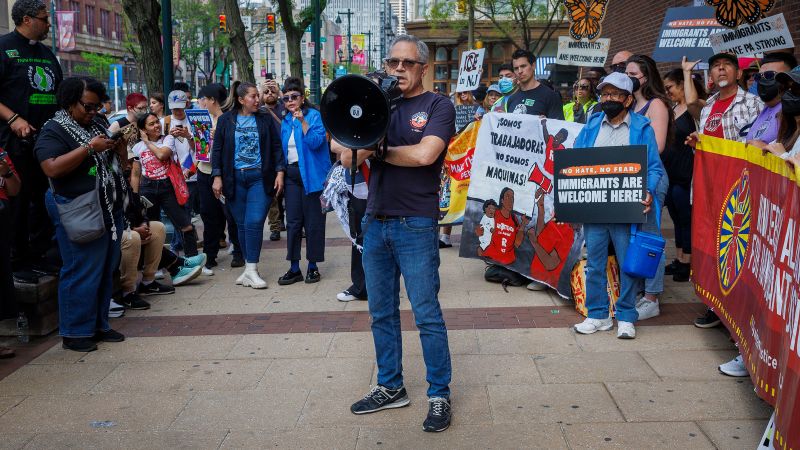On Tuesday, the citizens of Philadelphia and Pittsburgh are poised to participate in a pivotal primary election that sets the stage for the upcoming general elections in November. Given the overwhelmingly Democratic voter registrations in both cities, the outcomes of these primaries will likely determine the winners for some of the most significant positions in local governance.
In Philadelphia, the current District Attorney, Larry Krasner, is aggressively campaigning for a third term. Krasner, known for his roots as a civil rights lawyer, has often faced a barrage of scrutiny regarding his effectiveness as a prosecutor. Despite this, he has weathered attempts to unseat him, which successfully toppled other progressive district attorneys in cities like San Francisco, Los Angeles, and Oakland. His resilience is a testament to his support within the Democratic community of Philadelphia.
Meanwhile, in Pittsburgh, Mayor Ed Gainey, who made history as the city’s first Black mayor, is also seeking re-election. Both Gainey and Krasner are Democrats with a progressive agenda, though they face challengers in their respective primaries. The looming presence of former President Donald Trump adds another layer of complexity to these elections, as both Krasner and Gainey have committed to opposing Trump’s more conservative policies.
Interestingly, the Republicans will participate in the Pittsburgh mayor’s primary, though they have not fielded a candidate for the District Attorney’s race in Philadelphia. This highlights the more competitive nature of the Pittsburgh race, despite a long history of Democrats holding the mayoral office in the city.
Several key points are worth noting regarding the election dynamics. Despite facing political attacks and even an impeachment attempt from Republican state lawmakers, Krasner remains confident. He is running after a challenging campaign experience characterized by assaults on his crime-fighting strategies and policies. More favorable crime statistics may work in his favor this time as crime rates have fallen across many major U.S. urban centers since the uptick experienced during the COVID-19 pandemic.
Krasner’s primary challenger is Pat Dugan, a former U.S. Army veteran who served in Iraq and Afghanistan. Dugan, who previously held the position of head administrative judge of the Philadelphia Municipal Court, has criticized Krasner’s leadership, branding him “Let ’em Go Larry” in a bid to signal insufficient action against crime. Dugan contends that Krasner has filled his office with inexperienced attorneys, thereby undermining the effectiveness of the District Attorney’s office.
Krasner’s platform initially centered around progressive values emphasizing police accountability and justice reform, which included abolishing the death penalty and eliminating cash bail. In recent months, he has shifted some focus towards public safety, asserting his commitment to combat violent crime through innovative strategies and technologies.
Both candidates have attempted to leverage Trump’s name to their advantage in campaign messaging. Krasner has outlined his commitment to countering Trump’s political influence and has portrayed himself as a defender of Philadelphia’s justice system against external threats. On the other hand, Dugan has referred to both local crime issues and broader national concerns regarding the governance of Trump as evidence of a need for change.
In Pittsburgh, Gainey and his opponent, Allegheny County Controller Corey O’Connor, are embroiled in a fierce debate revolving around critical issues: affordable housing, public safety, and revitalization of the downtown area, especially vital as the city recovers from the deep scars left by the decline of its once-thriving steel industry. Gainey emphasizes his connection to the community, advocating for the ordinary citizen while touting progress under his administration.
O’Connor has emerged from the local Democratic Party as an endorsed candidate, offering critiques of Gainey’s management and fiscal responsibility. He posits that the current administration has failed to effectively address safety concerns or stimulate downtown business growth, thus appealing to voters who may feel disillusioned about their city’s trajectory.
The Republican primary features Thomas West and Tony Moreno, though it’s noteworthy that Pittsburgh has not experienced a Republican mayor in almost a century—a factor likely influencing voter dynamics in the upcoming election season.
In summary, the primary elections in Philadelphia and Pittsburgh reflect deep-rooted progressive aspirations and the complex intertwining of local and national politics. With candidates facing unique challenges, the election outcomes could significantly shape the policy landscape within these key Pennsylvania cities.



